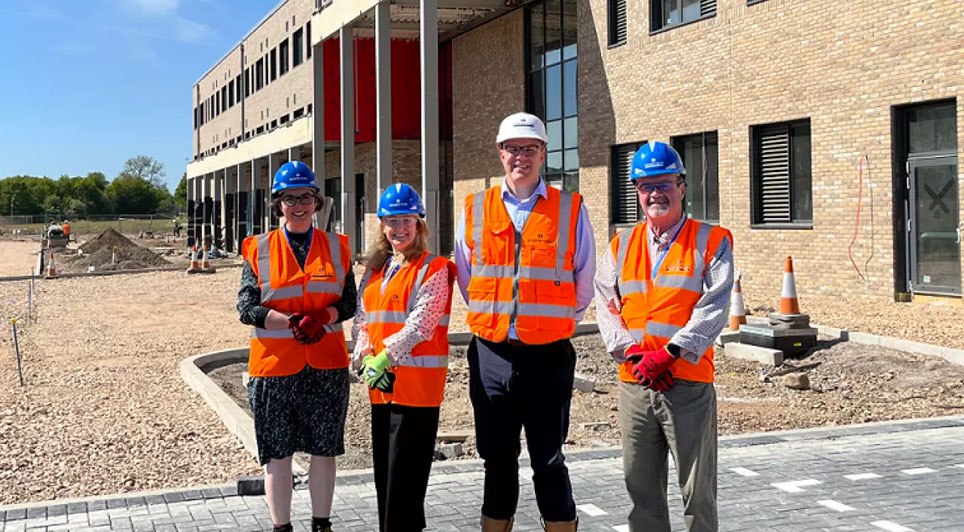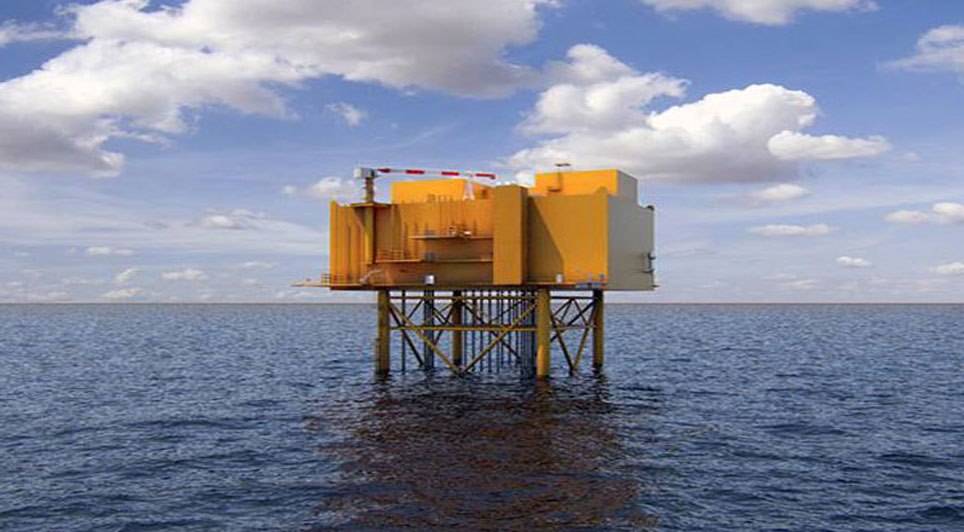Scotland's climate advisors, the Climate Change Committee (CCC), today published their advice on the country's four carbon budgets spanning from 2026 to 2045. This marks the first time the Scottish Government has sought such a comprehensive set of recommendations from the independent body, mirroring models already in place for the UK Government, Northern Ireland Assembly, and Welsh Parliament.
The CCC recommends ambitious average annual emissions reductions from 1990 levels:
• 57% lower for the First Carbon Budget (2026-2030)
• 69% lower for the Second Carbon Budget (2031-2035)
• 80% lower for the Third Carbon Budget (2036-2040)
• 94% lower for the Fourth Carbon Budget (2041-2045)
These targets include Scotland's share of international aviation and shipping emissions. As of 2022, Scotland's emissions were 50% below 1990 levels. The CCC estimates that delivering these budgets will incur a net cost of approximately 0.4% of Scotland's GDP per year, but will be offset by significant wider economic benefits, including savings for the economy and households from the adoption of more efficient, electric technologies.
Professor Piers Forster, Interim Chair of the Climate Change Committee, expressed optimism but stressed the need for immediate action: "Scotland's new system of carbon budgets will help guide the action we need to get to Net Zero by 2045. We're delighted to be able to present a good news story about how Scotland can decarbonise. But we do need to see action now. The Scottish Government has devolved powers to deliver the necessary emissions reductions in key sectors, particularly buildings, surface transport, agriculture, and land use. We encourage them to exercise these powers as quickly and fully as possible."
The CCC's advice highlights electric technologies as the clear low-carbon choice across many sectors. Heat pumps and electric vehicles (EVs), already available, could be rapidly deployed with the right incentives, drawing lessons from countries like Norway and Denmark for EVs, and Sweden and Finland for heat pumps. Nearly half of the recommended emissions reductions in the CCC's pathway for Scotland stem from electrification, particularly the widespread adoption of EVs and heat pumps, coupled with the ongoing decarbonisation of electricity generation.
Clean, efficient, electric technologies are also expected to offer wider benefits, such as reduced air pollution and more stable, lower energy bills compared to continued reliance on fossil fuels. The CCC's pathway for Scotland includes:
• Renewables: Offshore and onshore wind and solar capacity will more than triple from 15 GW in 2023 to 49 GW by 2035, further increasing to 66 GW by 2045. This expansion is projected to provide 98% of Scotland's electricity generation by 2035 and meet rising demand within Scotland and Great Britain.
• EVs: By 2035, approximately three-fifths of cars and vans on Scottish roads are projected to be fully electric (up from 2.2% for cars and 0.8% for vans in 2023). This figure is expected to reach 94% by 2045.
• Heat pumps: By 2035, 40% of existing homes in the CCC's pathway are heated by low-carbon electric systems, predominantly heat pumps (standalone or communal), with the remainder using heat networks or direct electric systems. By 2045, 92% of existing homes are projected to have low-carbon heat, reaching all homes by 2050.
The CCC presented 18 priority recommendations for immediate action. Core themes include:
• Supporting low-carbon heating: Urgently transitioning to low-carbon electrified heat, addressing upfront costs, and developing an alternative to abandoned proposals in the Heat in Buildings bill for private homes, including governance for communal systems.
• Home insulation: Providing effective support for households, especially low-income ones, to install insulation, and urgently consulting on minimum energy efficiency standards for privately owned homes.
• Expanding EV infrastructure: Supporting the deployment of public charge points, improving public transport, and investing in active travel infrastructure.
• Farming and nature: Providing long-term certainty on public funding for farming practices that reduce emissions and offering incentives for diversification into woodland creation, peatland restoration, agroforestry, and renewable energy.
• Engagement: Collaborating with the UK Government to enhance engagement strategies, providing clear, trusted information about low-carbon choices and their benefits.
• Jobs and industry: Continuing to work with the UK Government on developing CCS and hydrogen in the Scottish Cluster, identifying new low-carbon industrial opportunities (e.g., Project Willow for Grangemouth), and developing proactive transition plans for communities and workers.
• Making electricity cheaper: Urging the UK Government to remove policy costs and levies from electricity bills, a crucial step for Scotland's decarbonisation pace.
Construction News
23/05/2025
Climate Change Committee Urges Scotland To Accelerate Electrification For Net Zero


23/05/2025
Angus Council Leader, Councillor George Meechan, along with senior officers, recently visited the new Monifieth Learning Campus site to observe the "impressive progress" on the £66.5 million project. The campus is being delivered by Robertson Construction Tayside and is nearing completion.
Located

23/05/2025
Zero-emission aviation leader ZeroAvia has announced plans to build a major manufacturing facility for its hydrogen-electric powertrains at the Advanced Manufacturing Innovation District Scotland (AMIDS), near Glasgow Airport.
The project will also establish a Hydrogen Centre of Excellence, markin

23/05/2025
Muir Timber Systems has secured a new contract with Kirkintilloch-based construction specialists, SIM Building Group, to support the delivery of 22 new affordable homes at Whitehill Court in East Dunbartonshire.
The development will offer a mix of terraced homes and flats, helping to meet local hou

23/05/2025
Work has been completed on "The Auction Rooms", a design-led office development located at 22 Queen Street in the heart of Edinburgh's New Town.
The project has successfully transformed the former Bonhams Auction House into one of the city's most sought-after commercial spaces, which is already at

23/05/2025
The Federation of Master Builders (FMB) has officially launched its comprehensive model for licensing building companies in the House of Lords, marking a significant milestone in its decade-long campaign for mandatory builder licensing.
Developed through extensive cross-industry collaboration, the

23/05/2025
Perth and Kinross Council has officially launched a bold, £530 million Investment Prospectus at the UK Real Estate Investment & Infrastructure Forum (UKREiiF) 2025 in Leeds. The prospectus presents a compelling vision for sustainable, long-term growth across the region, targeting a high-profile audi

23/05/2025
Leading electricity infrastructure company, SSE, has announced its full-year 2024/25 financial and operational results, revealing a record investment of £2.9 billion in energy infrastructure over the past year.
This investment equates to approximately £8 million invested daily, supporting the UK g

23/05/2025
Scottish Land & Estates (SLE), the rural business organisation, has called on the Scottish Government to urgently outline its funding and support schemes for rural businesses, asserting that clear strategies are vital for Scotland to achieve a 94% cut in greenhouse gas emissions by 2045. This plea f

23/05/2025
Dundee's senior councillors have welcomed significant funding from the Scottish Government that will support two major projects in the city: the redevelopment of the Dundee Museum of Transport and ongoing improvements in the Lochee area.
The Dundee Museum of Transport at the former Maryfield tram d

23/05/2025
Scotland's climate advisors, the Climate Change Committee (CCC), today published their advice on the country's four carbon budgets spanning from 2026 to 2045. This marks the first time the Scottish Government has sought such a comprehensive set of recommendations from the independent body, mirroring
 Scotland
Scotland UK
UK Ireland
Ireland London
London











